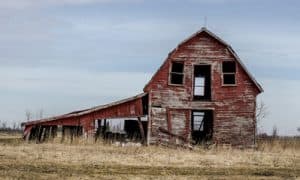
Keeping Rental Property in Chapter 7 Bankruptcy
Chapter 7 bankruptcy is commonly called liquidation bankruptcy. Since the appointed bankruptcy trustee has the power to sell your non-exempt assets to pay back your debts and can sell your property to reimburse your creditors. However you are allowed to keep a certain amount of property in Chapter 7 bankruptcy. How much property you can keep depends on your state’s exemption laws. Essentially, if you can exempt an asset, the trustee can’t sell it.
If your mortgage balance exceeds the value of your rental property, then a Chapter 7 trustee will not be interested in going after it. But you will need to continue making your regular mortgage payments if you want to keep the property. If you do not the lender can still foreclose on the house after your bankruptcy is completed (or possibly during your bankruptcy by obtaining relief from the automatic stay).
If your rental property is worth more than what you owe on it, you must exempt its equity if you want to keep it. Exemption laws and amounts vary significantly from state to state. However, to exempt the equity in rental property, you typically have to use an exemption specifically designed for it or a wildcard exemption (you can’t use the homestead exemption for properties that are not your principal residence).
Many states don’t offer exemptions that can be used to protect rental properties so you need to work with an experienced bankruptcy attorney to help you determine what will happen to your rental property. But if the property only has a small amount of equity, the trustee may decide to abandon it if there will be no money left for your creditors after sale costs (or you may be able to pay the trustee an amount equal to the nonexempt equity to retain the property).
Keeping Rental Property in Chapter 13 Bankruptcy
In Chapter 13 bankruptcy, the trustee doesn’t sell your nonexempt assets so it can be a safer option than a Chapter 7 case. However in exchange for keeping your property, you must pay your creditors an amount equal to the value of your nonexempt assets through your repayment plan.
If your rental property has negative cash flow, the court will usually not allow you to keep it and remain in the bankruptcy. This is because if your rental property is losing money, you can’t pay as much into your Chapter 13 plan (this impacts how your other creditors). As a result, the trustee will argue that your case should be dismissed unless you surrender the rental property (but keep in mind that this will generally not be an issue if you are paying back all of your unsecured creditors in full). Source:http://www.alllaw.com/articles/nolo/bankruptcy